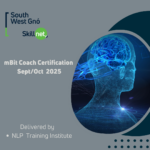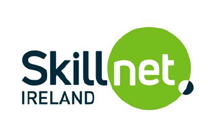Course Introduction
The goal of the Professional Diploma in Project Management is to provide practitioners with a practical framework that can be applied to any project. The course will suit established project managers who want to deepen their knowledge of each constituent component of a project and how they interact as well as relatively new professionals that need to hit the ground running. It covers the lifecycle of a project with special focus on project initiation, planning, control, and execution. The project lifecycle will be applied to a number of PM knowledge areas such as Scope, Schedule, Cost, Quality, Stakeholders and Communications. There will be a standalone module on Agile Project Management Methods. The course will use the PMI Project Management Book of Knowledge PMBOK.
Learning Outcomes
By the end of the course, learners will be able to:
– Discuss the environment and context in which projects happen in the modern business context
– Show the ability to scope a project appropriately, and structure its key stages
– Demonstrate an awareness of costs and the ability to allocate resources rationally
– Lay out a logical approach to managing, monitoring and reviewing project outcomes
Course Structure
● Live On-line Part-time: 1 evening per week, 6.30 to 9.30 pm, over 12 weeks
● Live On-line Bootcamp: Monday to Friday, 9 am – 4 pm, with 1-hour break for lunch (12 – 1 pm)
● On Campus (UCD Belfield): 1 evening per week, 6:30 to 9:30 pm, over 12 weeks
Course Breakdown
1. Introduction and Project Fundamentals
Introductions
Walkthrough of what to expect from the course
Project and Exam requirements
Definition of a Project, Program and Portfolio
Project Lifecycles
12 Principles of a Project Manager
8 Project Management Performance Domains
2. The Environment In Which Projects Operate
Operations vs. Projects
Project Life Cycles and Processes
Project Phases and Phase Gates
Organisation Structures
3. The Role of the Project Manager
Defining the Role of the Project Manager
Project Management Sphere of Influence
Project Management Competencies
Leadership vs. Management
4. Project Scope
Product Scope vs. Project Scope
Scope Interactions
Scope Planning
Collecting Requirements
The Work Breakdown Structure
Validating and Controling Scope
5. Project Schedule, Including Scheduling Tools
Schedule Planning
Defining and Sequencing Activities
Estimating Activity Durations
Developing a Schedule Using Scheduling Tools
Controlling a Schedule
6. Project Cost
Cost vs. Schedule Management
Planning Cost Management
Estimating Costs
Contingency vs. Management Reserves
Earned Value Management
Planned Value Management
Measuring and Interpreting Cost Variance
Cost Forecasting
7. Project Resources
Planning Resource Management Estimating Activities
Acquiring Resources
Developing, Managing and Controlling Your Resources
8. Project Communication
Communication Plan Management
Communication Channels
Managing and Controlling Communications
9. Project Risk
Relationship between Risk, Opportunity and Threats
Risk Factors
Risk Attitudes
Risk Planning
Risk Identification
Qualitative Vs Quantitative Risk Analysis
Risk Responses
Monitoring and Controlling Risk
10. Stakeholder Management
Identifying Stakeholders
Planning Stakeholder Engagement
Stakeholder Register
Stakeholder Engagement Assessment Matrix
11. Project Integration Management
Bringing all the processes, tools and techniques together
Configuration Management vs Change Management
Closing the project
12. Agile Project Management Methods
Agile Manifesto
Comparing Definable Work to High Uncertainty Work
Iterative Vs Predictive Vs Incremental Vs Agile Life Cycles
Creating an Agile Environment
Delivering in an Agile Environment
Measuring Progress in an Agile Environment
Organisational Considerations
How will I be assessed?
There will be a one hour multiple-choice exam which will account for 25% of the overall grade. Learners will be expected to complete the exam within 72 hours from the final class.
In the two weeks after the end of the course, you will be required to write and submit a 3,000-word project management plan on a project of your choice, which will account for the other 75%.
Click here for Programme Dates
Training Provider: UCD Professional Academy
Programme Cost: €1,500
Programme Cost to South West Gnó members: €525.00
Bookings
Bookings are closed for this event.






